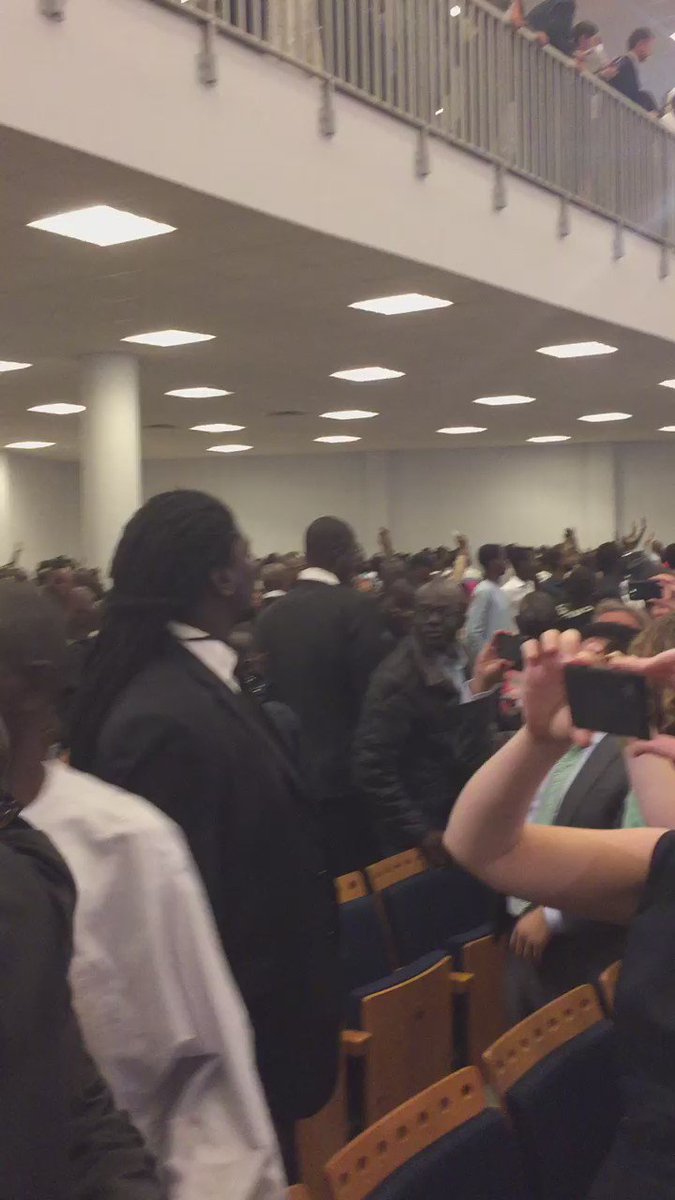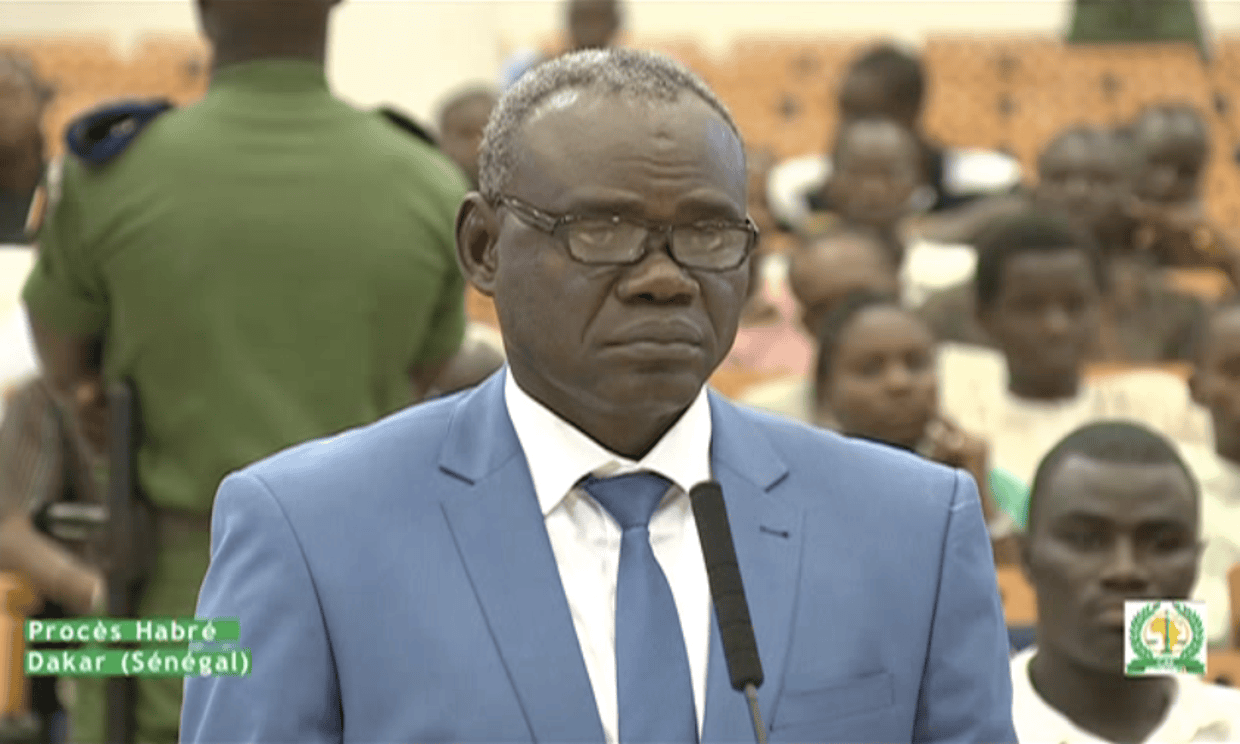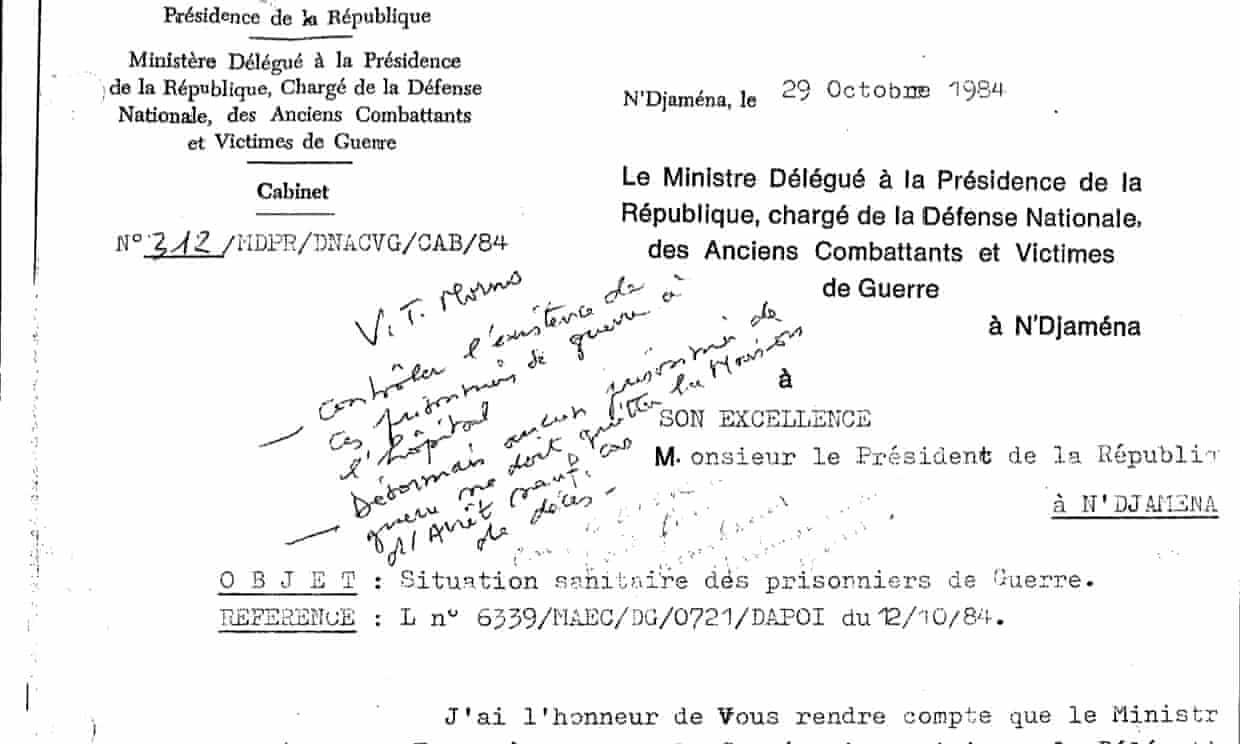A special court in Senegal has sentenced former Chadian dictator Hissene Habre to life in prison for war crimes, crimes against humanity, and a litany of other charges including rape.
Key points:
- Hissene Hibre’s crimes include forced slavery, kidnapping and rape
- The verdict caps a 16-year battle by victims and campaigners
- The conviction ‘sends a powerful message’ to other despots, lawyers say
The verdict brings a long-awaited day of reckoningto up to 40,000 people kidnapped, raped and tortured under his rule as president of Chad from 1982 to 1990.
“Hissene Habre, this court finds you guilty of crimes against humanity, rape, forced slavery, and kidnapping,” as well as war crimes, said Gberdao Gustave Kam, president of the special court.
“The court condemns you to life in prison.”
The court also heard that Habre had raped a woman named Khadija Hassan Zidane on several occasions.
Upon hearing the verdict, Habre raised his arms into the air, shouting “Down with France-afrique!” referring to the term used for France’s continuing influence on its former colonies.
The verdict caps a 16-year battle by victims and rights campaigners to bring the former strongman to justice in Senegal, where he fled after being toppled in a 1990 coup in the central African nation.
“The feeling is one of complete satisfaction,” said Clement Abaifouta, president of the Habre survivors association known by the acronym AVCRHH.
The case was heard at the Extraordinary African Chambers (CAE) — a special tribunal set up by the African Union under a deal with Senegal.
It is the first time a country has prosecuted a former leader of another nation for rights abuses.
‘Verdict sends a powerful message’
Reed Brody, a lawyer for Human Rights Watch who has spent the last 15 years working with victims to bring Habre to justice, said the conviction was “a huge victory for Chadian victims” and a warning to other despots.
“This verdict sends a powerful message that the days when tyrants could brutalise their people, pillage their treasury and escape abroad to a life of luxury are coming to an end,” Mr Reed said in a statement on Monday.
Known as a skilled desert warrior who often wore combat fatigues to fit the role, Habre fled to Senegal after his 1990 ouster by Chad’s current President Idriss Deby.
Witnesses recounted the horror of life in Chad’s prisons, describing in graphic detail abusive and often deadly punishments inflicted by Habre’s feared secret police, the Documentation and Security Directorate (DDS).
Victims were subject to electric shocks and waterboarding while some had gas sprayed in their eyes or spice rubbed into their genitals, the court heard.
Habre’s defence team unsuccessfully sought to cast doubt on the prosecution argument that their client was an all-knowing, all-powerful head of the DDS, suggesting he may have been unaware of abuses on the ground.
For more than 20 years, the former dictator lived freely in an upmarket Dakar suburb with his wife and children, swapping his military garb for white robes and a cap.
He declined to address the court throughout the 10-month trial, refusing to recognise its authority.
“What we have seen today is not justice. It is a crime against Africa,” said Mahamat Togoi, part of a Habre supporters group.
“It’s the dirty work of mercenaries in the pay of France-afrique.”
But Mahamat Moussa, a former detainee, had said a guilty verdict would provide solace to many families left without answers 25 years after Habre left office.
“A verdict proportionate with the crimes committed by Habre will allow many families to properly mourn and offer some comfort from the suffering we former prisoners endured,” he said.
AFP/Reuters







